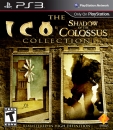| rocketpig said: Reasonable, I agree with some of what you're saying but you seem to be stuck on using "storytelling" in a narrative form. I keep bringing up Mass Effect 2 because it's the first game I've ever played that actually tried to push these characterization elements over traditional story elements. They became more important than the "main" story arc. I'd also argue against your statement that Silent Hill 2 was more tense than the final assault in ME2. IMO, the player connection to the characters created a much greater sense of danger than anything a conventional story would ever offer in a game experience, even one as good as SH2. I found myself caring about NPCs in the ME2; that almost NEVER happens in any game for reasons I've pointed out earlier. Once that connection is established, I cared more about those characters than anything else that was going on in the game. Although, to be fair, SH2 had a fair amount of that feeling as well. |
No I get it 100%, I'm just responding to certain posts and the fact the medium insists on using linear narrative (or trying to) which makes it fair game for criticism when it fails.
I'll summarize:
For quest based games like an RPG, I'd say drop the central quest entirely. Have a set of quests, some of which get 'turned on/off' depending upon your actions and just let the game emerge. For example, imaigne ME but you are just a peace keeper and you go about your business, you might loose some of your team, you might not, and the overall experience varies and changes on your choices but the whole isn't hindered by trying to fit this around a linear 'plot'. This is I believe your point and I agree 100%. Oblvion without the silly central quest, just the guilds and what used to be 'side' quests, Fallout 3 with just the various factions and no central quest, same for Mass Effect as well. In addition, this makes it easy to extend the game via DLC if popular as you just push out additional quests (Oblivion and Fallout 3 showed this well I thought).
decisions should be transparent. the issue is developers worry we want to know what we might have missed or not 'get' the full experience, so they expose the mechanics, they highlight choices and as Jaffe points out well this stops it being a story and makes it an excercise in making game choices. Bioshock is a simple examaple. I'd bet a huge sum of your money that most players chose to harvest/not based on understanding the gameplay mechanism then deciding whether to be 'good' or not or get more Adam. Now imagine that decision is properly blind, and you live with the consequences. Deus Ex had great choice mechanims, and actually better than recent efforts like ME 1 & 2 IMO with less 'telegraphing' as did Silent Hill 2 as I've said. Actually, I must post when I have time some examples but SH2 had the best mechanism for the impact of choice I've ever played.
Tension I think is a little in the eye of the beholder, which was more what I meant to say to Selnor - just saying ME has the most tense moments ever is something you can't substantiate.
I would argue that, to date, I'd be surprised if a majority of people didn't find some of the situations in Heavy Rain as arguably the tensest ever, as it offers some surprisingly crazy moments where your character is in danger which are not fantasy based (I admit again this is a natural advantage for Heavy Rain, playing as a woman in danger of being raped is intrinically more realistic and tense that a SF setting).
I think we see this the same from your comments, that game designers should put more effort into non-linear, choice based gameplay and less into trying to prodouce better narrative stories, because it's unlikely that they're going to come anywhere near matching novels or films in that regard.
Try to be reasonable... its easier than you think...




















